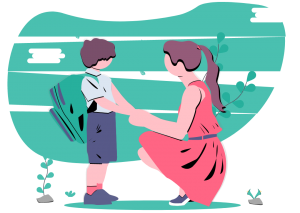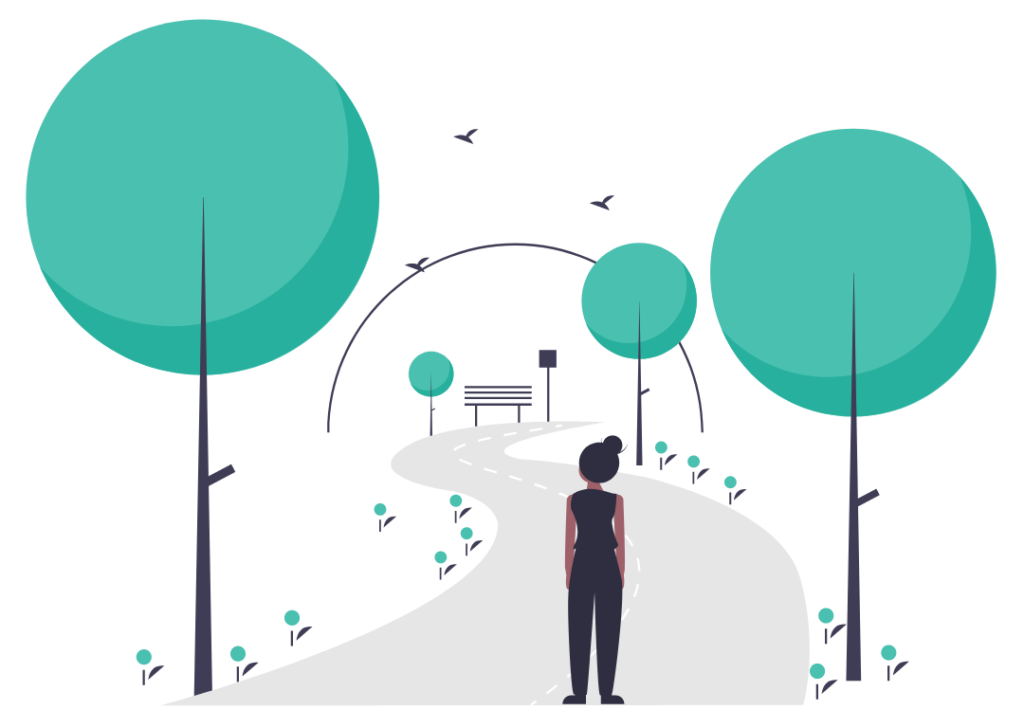
How Caregiving Taught Me to Endure
Just two months after Patrick began volunteering at a hospice, he became a full-time caregiver for his partner’s dad.

Kelly's 5-year-old son was diagnosed with a brain tumor and she immediately started rearranging her life to support his care. It wasn't until later that she understood she had stepped into a caregiver role. Kelly reflects on the blessings that came from his illness, how she learned to embrace asking for help, and the realization that gratitude is a choice. This is Kelly's story.
As told to Open Caregiving and lightly edited to enhance readability while preserving the author’s voice.
Hi, my name is Kelly. I’m a Gen X woman from Illinois (Chicagoland area). I am currently a caregiver and also work part time in ministry.
Caregiving began suddenly. My then five-year-old son was diagnosed with a brain tumor. One weekend we were hiking in the woods and hopping on rocks across a waterfall. The next weekend we were in three hospitals trying to understand the diagnosis of a brain tumor. They found it in the part of the brain that controls gross motor skills.
As soon as my son recovered enough from surgery, he went through chemotherapy and radiation. We are blessed to live in the Chicagoland area with its tremendous medical facilities, including the Midwest Children’s Brain Tumor Center where Bobby received all his treatment.
Our lives shifted dramatically. I immediately quit my job as an advertising executive, my husband juggled his teaching with daily visits to the hospital, and our two-year-old went to live with grandma.
Spoiler alert: Our story is a good one. Bobby is now a 22-year-old college student. The brain tumor and its treatments left him with many disabilities. But again, we are very blessed. Loras College has one of the best programs for students with learning disabilities. Dubuque, Iowa, is only three hours away. My husband and I are college sweethearts, alumni of, yes, Loras College. And our younger son has a lovely relationship with his grandmother.
For a long time, I didn’t think of what I did with Bobby as caregiving; it was just being his mom. It made the most sense for me to quit my job, so I did. I stayed with him the whole time because I could. Our parents juggled caring for our younger son during the first two months of Bobby’s treatments.
I just did what any parent given the opportunity would do. But it was still caregiving, and with that came, I realize now, the isolation, losses and stress common to all in a caregiving role. And the tremendous learning, stretching, and growing.
One memorable learning from early on is that there is no answer to why: why me, why us, why him. This side of heaven, we won’t know why. But we do get glimpses. Now that we’re this far out, we do see the many graces and blessings that have come as a result of Bobby’s illness.
One is Nourish for Caregivers. I would not be doing what I am doing now if it were not for Bobby’s brain tumor and my caregiving experiences. I certainly don’t think the Lord gave Bobby his tumor, so I can be a caregiver, and someday have this ministry, but I do believe that the Good Lord gave me experiences and circumstances which, shared, can provide hope and healing to others. A way for them to encounter the mercy and love of Jesus.
What most surprised me about caregiving is how calm and composed I can be with the big things, but I can also get totally discombobulated by little things. Sometimes I get so disappointed in myself.
I’ve looked at the worst-case scenario square on. (“He’s not neurologically responding as we’d like … your son has a brain tumor.”) Yet, I can still get upset by stupid petty things like dirty dishes left in the sink or someone’s careless remarks.
Yes, God is still working on me, and like the clay in the hands of the Master, the imperfections will be worked out if I remain contrite and malleable.
We make mistakes, get up, and continue. Nobody is perfect, and that’s okay.
Balancing being a caregiver and caring for oneself is a common conundrum. By nature, we’re givers and we just keep pouring out. I am blessed by a supportive husband who shares in everything. I am also blessed by an extensive and supportive network of family and friends.
But the one thing that helps keep everything in balance is faith. A deep and absolute conviction that no matter what, the Lord is in this moment. Scripture cements that assurance, and one of Bobby and my favorites: “The Lord will work out his plans for my life, your lovingkindness endures forever.” (PS 138:8).
Don’t be afraid to ask for help. Every caregiver at some point or another needs to shoot up an SOS flare. It doesn’t mean that you’re weak, selfish, or incapable. It means that you’re human.
We are made to be with others. God created us out of love, and we are born into a family, a community. We need others. It’s okay to ask for help. It’s okay to not know how to do everything. It’s okay to feel overwhelmed, confused, and upset. It’s what you do with it that’s important. And every day is a new opportunity to do so.
Find resources, support groups, and caring friends. This is your season. Your season of caregiving and your season to receive other’s help. Someday you may return the favor and assist others, but get the help you need right now.
Hardly a fair question, but the resource I would recommend is finding a Nourish for Caregivers group. The curriculum provides practical, emotional, and spiritual support for caregivers. The website has extensive links to other resources, and now, there are virtual groups like weekly House Calls and The Caregiving Wisdom Series, and Facebook groups for additional information and support. Getting together with others is an invaluable resource.
I’m also a book person and I process things by writing, so I would recommend our new journal, The Caregiver’s Companion (available at Ave Maria Press and Amazon). Beneficial to new caregivers as a guide when they encounter different seasons on their journey, as well as a rich resource for experienced caregivers to record and reflect on their experiences.
When Bobby was diagnosed and during those long days and nights spent in the hospital recovering from his brain surgery and as we began the first rounds of chemo and radiation treatments, there was plenty of time for reflection. One thought I kept coming back to me was no regrets. With much gratitude, I realized we had lived our lives up to that point with no regrets.
We spent time together as a family; we made an effort for family dinners, church, and time with friends. With this gift, we could face forward and focus on what was going on right now. It also allowed us to stay in the present, knowing if the worst happened, if Bobby died, we had still made the most of each moment we had. It freed us up to be grateful and present. Not every relationship can claim no regrets, but we can choose to let go of the past. Likewise, we can choose to not project our worries and concerns into the future, what could happen or might be.
Caregiving requires planning, of course, but prudent planning differs from projecting fears and imaginings that can cripple receiving the blessings of the present moment and the blessings of being with our loved one as their caregiver.
As I look back, I am awed and humbled by the selfless gifts given to us by others: meals, prayers, books, cards, etc. The compassionate care from the nurses, doctors, and staff.
One favorite was at Christmas time. Bobby’s surgery was the Monday before Thanksgiving, and I was in the hospital with him continually, so my first trip home wasn’t until about two weeks before Christmas. As I pulled into the driveway, Christmas lights twinkled from the eves and bushes. As I realized several of our neighbors decorated our home, the lights blurred as my tears flowed.
This small gesture was a huge gift, showing love and support, and created a sense of normalcy in my very upside-down world. God’s bright light shines in through the kindness of others. Gratitude is a choice, and when we choose to see with a lens of gratefulness, everything else slides into place.
Learn more about Kelly’s story at Nourish for Caregivers, a nonprofit created to improve the health and spiritual well-being of family caregivers.

Just two months after Patrick began volunteering at a hospice, he became a full-time caregiver for his partner’s dad.

Emmy dropped out of college to care for her mom and her stepfather, who both were diagnosed with sever illnesses.

As Joy was mourning the loss of her father, her mother was diagnosed with cancer and required emergency surgery.